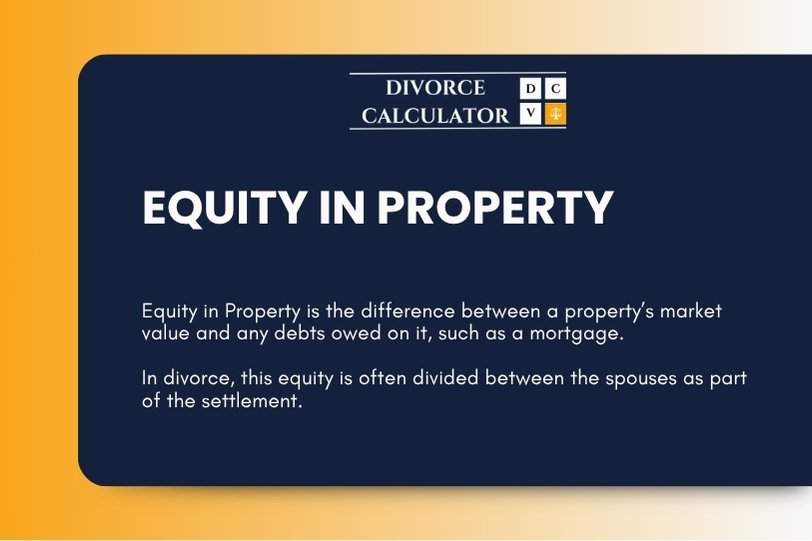When we talk about property, one of the most important concepts to understand is equity. Equity in property is the difference between what our property is worth and how much we still owe on it. This value plays a major role in our long-term financial health.
By building equity, we can strengthen our financial position and create more options for the future, such as leveraging loans, funding renovations, or even purchasing additional properties. Understanding how equity works helps us make informed decisions about buying, selling, or holding onto real estate.
Key Takeaways
Equity in property refers to the difference between the market value of our property and any outstanding mortgage or other liens.
As we make mortgage payments, our equity generally increases, provided property values remain stable or rise. If values decline, our equity can decrease, even if we’re making regular payments.
Key points to remember:
- Equity can be built faster by making extra payments or increasing property value through improvements.
- Borrowing against equity, such as with a home equity loan, can carry risks, including increasing our overall debt load.
| Term | Description |
|---|---|
| Home Equity | Value we own outright in our property |
| Equity Loan | Borrowing money using our equity as collateral |
| Loan-to-Value | Ratio of loan amount to property value |
We should monitor factors like market conditions and loan balances to understand changes to our equity over time.
If we sell our property, equity represents the portion we’re likely to receive after paying off loans and transaction costs. It’s important to have a clear understanding of equity before making major financial decisions involving our property.

Why It Matters In Divorce
When we face divorce, property equity becomes a central issue. Equity is the value of an asset we actually own after subtracting debts such as mortgages or loans.
During divorce, courts often use equity to decide how property is divided. This helps ensure both parties receive a fair share, not just an equal split of assets.
We know that equity affects key property, especially our family home. If the house is worth $300,000 and the mortgage is $100,000, our equity would be $200,000.
| Asset | Market Value | Debt Owed | Equity |
|---|---|---|---|
| Family Home | $300,000 | $100,000 | $200,000 |
| Car | $20,000 | $5,000 | $15,000 |
Courts look at this equity table to see what each of us could receive. If one person keeps the home, they might have to buy out the other’s share of the equity.
Transparent equity calculation helps reduce disputes and clarifies expectations. When we document all debts and property values, it makes the process less confusing and more predictable for everyone involved.
Real-Life Examples
When we buy a house, equity is what we own. For example, if we purchase a property for $300,000 with a $60,000 down payment, our initial equity is $60,000.
Let’s say property values rise and our home’s value increases to $350,000 while our mortgage balance drops to $220,000. Our equity becomes $130,000 ($350,000 minus $220,000).
| Year | Home Value | Mortgage Balance | Equity |
|---|---|---|---|
| 2022 | $300,000 | $240,000 | $60,000 |
| 2025 | $350,000 | $220,000 | $130,000 |
Refinancing can also affect our equity. If we take out a home equity loan, we might access part of this equity as cash while our remaining equity adjusts accordingly.
Sometimes, property markets decline. If our home value drops below what we owe on the mortgage, we could end up with negative equity.
We may also increase our equity by making extra payments or renovating, which can add value to the property and increase our share of ownership.
How States Handle Equity In Property
Equity in property is treated differently from state to state, influenced by local laws, market conditions, and homeowner protections. Understanding these variations helps us make informed decisions when buying, selling, or retaining property.
New York
In New York, property equity is significantly influenced by high real estate values and strict regulatory frameworks. We see that courts consistently recognize a homeowner’s right to equity, especially in foreclosure situations. If a bank proceeds with foreclosure, state law mandates that the homeowner receives any surplus from the auction, after debts and costs are paid.
The state’s strong tenant protections also impact landlord equity, particularly with rent-stabilized or controlled apartments. These regulations can limit potential appreciation or rental income, affecting how much equity landlords can accrue over time.
Homeowners in New York benefit from protections like the Homestead Exemption. This allows us to shield a portion of home equity from creditors, but the dollar amount varies by county, ranging from $75,000 to $150,000 for a single owner.
California
California law views equity as a protected asset for homeowners, especially regarding bankruptcy and foreclosure. The state’s Homestead Exemption—raised to a minimum of $300,000 and up to $600,000 depending on county median sale price—offers significant protection from certain creditors.
Foreclosure processes in California follow a non-judicial model, meaning lenders can foreclose without court involvement. However, this process requires detailed notices and a right to cure, giving us time to preserve our equity if we fall behind on payments.
Community property rules also affect equity division in divorce cases. Any increase in equity during a marriage is considered joint property and is split equally upon separation unless a different agreement was reached.
Texas
Texas provides extensive protections for home equity, especially through its constitutional homestead provisions. Our homes are safeguarded from most creditors, except a few like mortgage lenders, property taxes, or home improvement loans.
State law limits the amount of debt that can be secured by the home. Total loans secured by a primary residence can’t exceed 80% of its appraised value, helping us preserve home equity even if we refinance or take out a home equity loan.
The process for foreclosure in Texas is non-judicial and typically fast—less than two months from notice to sale. Equity after debt and fees goes to the borrower, ensuring we recover any remaining value.
Florida
Florida law offers broad equity protections through its Homestead Exemption, which, unlike many states, is unlimited in dollar amount for a primary residence within a half-acre in a city or 160 acres elsewhere. This provision prevents most creditors from forcing the sale of our primary home to satisfy debts.
Foreclosure in Florida generally requires court involvement. This can slow the process, giving homeowners more time to resolve defaults or tap into their equity.
Equity is treated as a marital asset in divorce proceedings and is divided equitably, but not always equally. Special rules apply if one spouse owned the property before marriage or contributed separate funds.
Tips If You’re Dealing With Equity In Property
When managing property equity, it’s essential that we understand our current equity position. We can calculate this by subtracting any outstanding mortgage balance from the latest market value of our property.
It’s wise to periodically review local market trends. This lets us assess any changes in our property value and how these shifts affect our equity.
If we’re considering using our equity—such as for refinancing or a loan—we should carefully compare different financial products. Interest rates, loan terms, and fees can vary; we recommend making a table to track options:
| Lender | Interest Rate | Fees | Terms |
|---|---|---|---|
| A | 4.2% | $900 | 15 years |
| B | 4.0% | $1,100 | 20 years |
Consulting a professional—like a financial adviser or property valuer—can help us make informed decisions. These experts provide advice tailored to our specific situation.
We must also consider the possible risks. Using equity increases our debt and could affect our financial security if property values fall or interest rates rise.
Regularly reviewing our repayment plans and budget is another key step. Staying organized helps us avoid unexpected financial pressure.
Frequently Asked Questions
We often encounter questions about how equity functions in property ownership and the effects it has on financing, selling, and personal wealth. Clarity on these topics helps us make sound financial choices when dealing with real estate assets.
How is equity calculated in real estate property?
Equity is calculated by subtracting the remaining mortgage balance from the current market value of the property. For example, if our property’s value is $400,000 and we owe $250,000, our equity is $150,000.
What are the ways to utilize home equity for wealth building?
We can access home equity through loans or lines of credit to fund home improvements, invest in other properties, or consolidate higher-interest debt. Sometimes, a cash-out refinance allows us to use equity directly as liquid capital.
What are the implications of selling a house with respect to the homeowner’s equity?
When we sell a house, our equity is the basis for the net proceeds we receive after paying off the mortgage and other selling costs. If our house appreciates in value, selling can allow us to realize an increased return based on our built-up equity.
How does a home equity loan work?
A home equity loan lets us borrow a lump sum using our home as collateral, typically with a fixed interest rate and repayment term. Payments are made in regular installments, and failure to repay could put our home at risk.
What does having a certain percentage of equity in your home signify?
Having a higher percentage of equity indicates more ownership and less debt relative to the property’s value. For instance, 50% equity means we own half the home outright, which could qualify us for better loan terms or refinancing options.
What is the definition and importance of home equity for property owners?
Home equity is the portion of our property we truly own, calculated as the difference between market value and any outstanding loans. It is an asset that contributes to our net worth and provides financial leverage for future investments or emergency needs.



